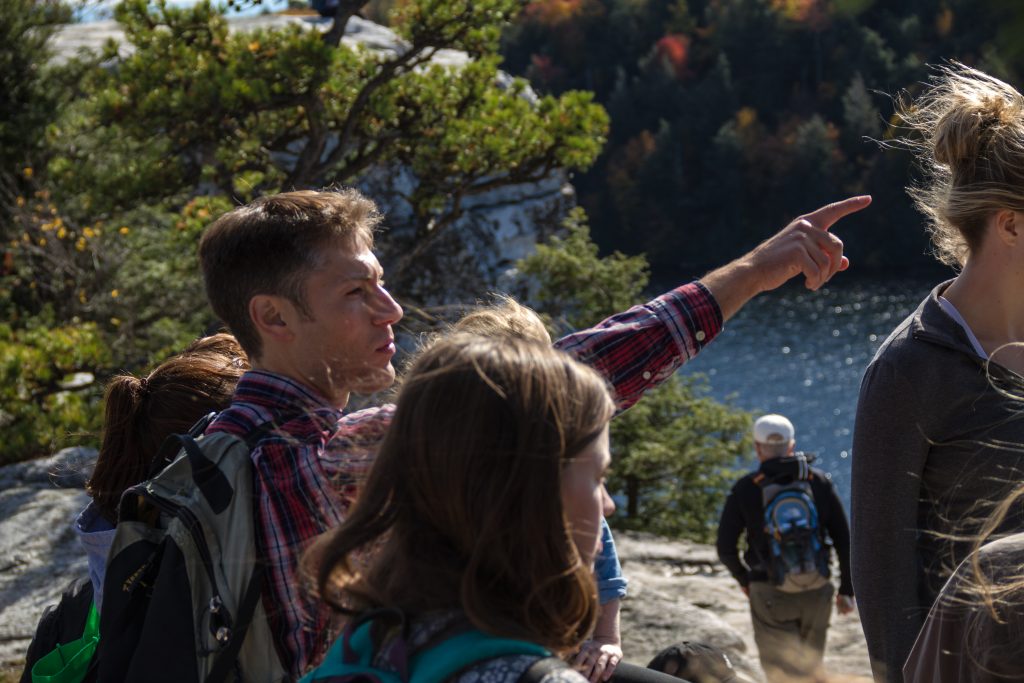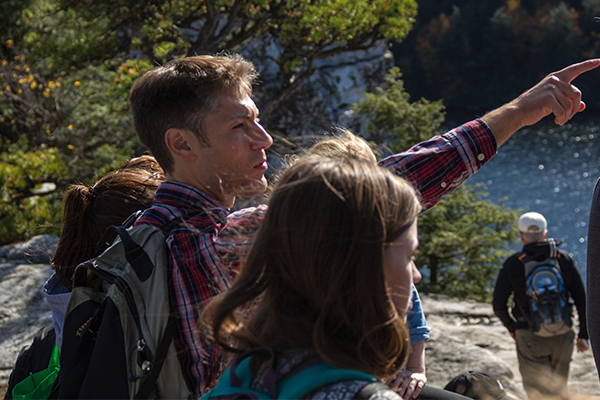Two new peer-reviewed papers out from the Biology Department’s leading lake researcher

David Richardson, professor of biology, is co-author of two new peer-reviewed papers that both explore ways in which changing climate is affecting lake ecosystems.
“Deeper waters are changing less consistently than surface waters in a global analysis of 102 lakes,” an open-access article published in the Nature Research’s journal Scientific Reports, draws on data collected from lakes around the world to better understand how their temperatures changed over the 40-year period from 1970-2009.
The researchers found that while surface waters are warming quickly and fairly consistently, deep water temperatures were less predictable, with some lakes having cooling deep water and some lakes having warming deep water.
This was a large co-authored paper with participants representing Africa, Asia, Australia, Europe, and North America. The project was led by Rachel Pilla, a graduate student from University of Miami Ohio, and coordinated through the Global Lakes Ecological Observatory Network, with which Richardson and many students in his lab have worked in the past.
The second paper, “Under-ice respiration rates shift the annual carbon cycle in the mixed layer of an oligotrophic lake from autotrophy to heterotrophy,” is somewhat more local.
Published in Inland Waters, the flagship journal for the International Society of Limnology, this describes a study conducted at Lake Sunapee in New Hampshire, where researchers were able to obtain a unique, full-year record of water chemistry and physics that allowed them to estimate lake metabolism for a full 12-month cycle.
They found that, despite the lake being close to freezing and darker in the winter, organisms under the ice continued to respire at rates higher than during the summer and photosynthesis continued throughout the winter. They also provided evidence that year-round sampling is essential for understanding carbon cycling in lakes in our region.
This paper was a collaborative effort with researchers from Dartmouth College, Virginia Tech, Colby College, and Cary Institute of Ecosystem Studies. It was led by Richardson, Jennifer Brentrup of St. Olaf College in Minnesota, and Cayelan Carey and Nicole Ward, both from Virginia Tech.
Learn more about SUNY New Paltz’s Department of Biology using this link.

